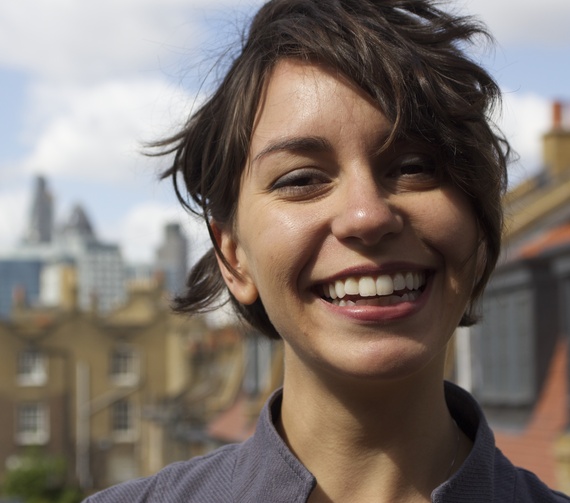By: Alanna Ford
In the year 2050, I'll measure my life's success by the percentage of people living on less than $2 a day. Of course, I won't be the sole force that moves our planet in a more equitable direction, but I certainly will contribute to building the movements that get us there. In my interconnected worldview, I cannot be passive living in a world where my fellow human beings don't have access to the most basic resources to meet their needs.
I'm not precisely sure where this pressing drive sprang from within me, but I do know that it has been there for as long as I can remember. From a young age I understood that humans were infinitely powerful, but that some had less access to resources, inhibiting them from bringing their full potential to life.
I was nine years old when I started my first social enterprise, although I wouldn't have referred to it with such highfalutin language back then. FFC Dollar was a store in my basement named after my two girlfriends and I, my co-founders and co-conspirators. Together, we made a range of handmade products by recycling fabric, magazines, and other materials we found around our houses. With each $2 pillow or 25¢ necklace we sold, we raised money for local charities supporting families in our rural community. It was like a ritual: anytime a visitor came over to our house, I lured them down to the basement to shop. I had absolutely no shame. My poor parents; all of their friends were the perfect target customers.
FFC Dollar was the first experience where I recall creating something new by working in community to combine the resources around me. This approach has become a uniting thread throughout my life since then.
Fast forward roughly a decade, and I'm in Ahmedabad, India. I'm working on very similar projects to those at FFC Dollar, but this time through the Self-Employed Women's Association's (SEWA) artisan cooperative. It was there, in Gujarat's summer heat, that I saw the immense power of applying social impact frameworks and magnifying their power by investing in women. I remember it vividly: sitting on the floor trying to catch some breeze from the fan while listening to my co-worker Rehat talk about her family life as she showed me the photos of the man she was arranged to marry. Through her work at SEWA, she had become the primary breadwinner of her family, surpassing even her brother's earnings. Because of her fair wages, her family had decided to push back the wedding until Rehat was a bit older. I was seeing a micro-example of social change that echoed larger shifts playing out on a global scale.
I was hooked.
In the years since then, I've worked with a wide range of social impact organizations, from the grassroots to the governmental level. It was while working at an NGO in the U.S. that I became interested in more sustainable models for creating social change. After seeing the organization close several programs as it chased after grant funding, I was left wondering: Aren't there more effective ways of going about this work? Can't we focus on our core offerings and spend less resources on fundraising? I had fundamental questions around the economic systems upon which philanthropy was based. I was hungry to learn new ways to help society progress.
As it turns out, I moved forward by returning to my roots. I decided to pack up my bags and move to the UK to go to business school so I could reconnect with the entrepreneurial days of FFC Dollar. While working through classes on accounting and strategy, a whole new world of social entrepreneurship opened up to me. I got the chance to collaborate with businesses like Soko, a Nairobi-based startup that connects Kenyan producers to global consumers using mobile technology. I started to see social problems as business opportunities, and ultimately founded my own startup with three of my classmates.
I think the most valuable lesson that I gained was the understanding of the importance of scale. Nearly half of the world's population -- 2.8 billion people -- live on less than $2 a day. The scope of the challenges facing our planet is massive, so how am I using my time on the earth to support scalable solutions that will change the lives of millions of people?
I'm still reflecting on many of these questions. I don't have all of the answers, but I do know that social entrepreneurship and women's empowerment are two incredibly powerful frameworks for fostering locally-led change that has potential for exponential growth on a global scale. I hope to continue bringing together communities and resources in new ways in order to build innovative, impactful solutions.
These themes will be addressed in more detail through the Pioneers for Change Fellowship kicking off on March 23 and 24, 2015 in London. Pioneers for Change is an initiative of Adessy Associates.
About Alanna Ford
Alanna's professional experience spans 5 continents, where she has worked with social enterprises, NGOs, and governments to foster social justice. She holds a BA in Art and International Studies from Davidson College in North Carolina, and an MSc in Management from University of Edinburgh Business School in Scotland. Despite these academic acronyms, she thinks her best teachers are the people she speaks with every day. You can find out more about her work at www.alannaford.com.

